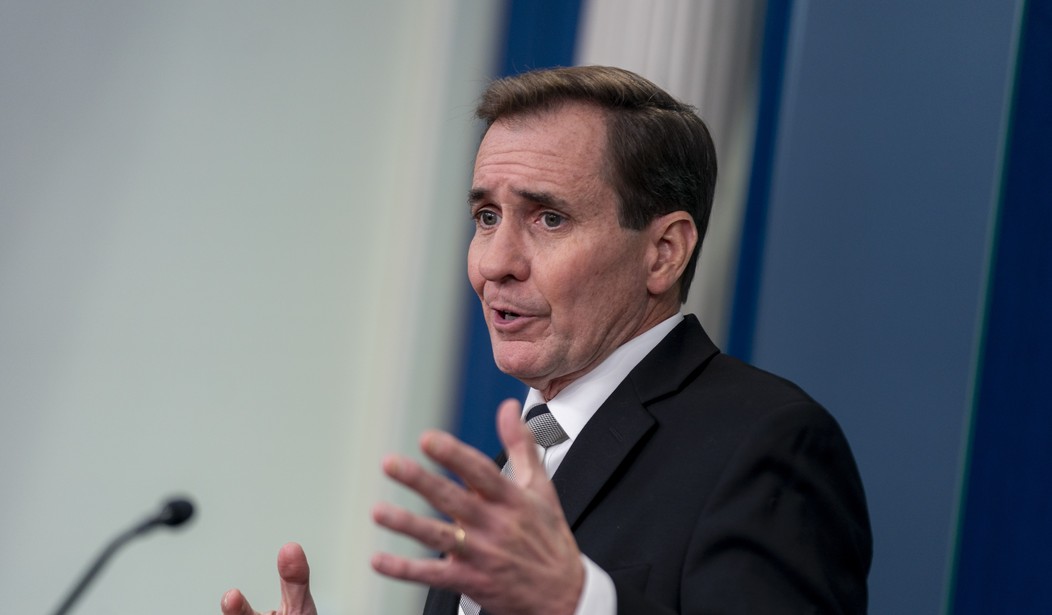Of course they do. But will enough of them survive this phase of the war to issue the order to stop firing missiles into Israel?
That question may be more acute than some realize. Thus far, Israel has not yet targeted Hezbollah's supreme commander Hassan Nasrallah, but they have eliminated nearly all of the next level of commanders in the organization. They took aim at one of the few remaining today in another strike on the group's stronghold in Beirut:
The IDF's likely target in Beirut on Tuesday afternoon was Hezbollah's rocket chief Amr Abdallah Dalsh.
Lebanese media claimed he survived, but the IDF has not yet commented.
Yesterday, they tried to take out the last remaining top commander besides Nasrallah himself:
On Friday, the IDF killed Hezbollah Radwan special forces commander Ibrahim Aqil and around 15 other sub-commanders, and on Monday, the air force attempted to assassinate Ali Karaki, Hezbollah’s third in command, the last remaining living member of a triumvirate of top military advisers to Hezbollah chief Hassan Sayyed Nasrallah.
The word is that Karaki may have survived but is at least temporarily incapacitated. We don't have definitive word yet on Dalsh, but needless to say, he won't be popping his head above ground for a while even if he did survive the attack. The Israelis have excellent intel on these commanders and their movements, which they have proven repeatedly over the past week -- perhaps a sign that Operation Grim Beeper had more capabilities than we have yet learned.
The Israelis may just be warming up. They have expanded their sorties in the western Bekaa Valley, multiple media outlets report, in an attempt to destroy Hezbollah's strategic missiles and to cut off any more imports of them from Iran via Syria. They have also increased strikes in southern Lebanon, which has been interpreted by residents there as a sign of an imminent ground invasion. As NBC's Richard Engel reports this morning, Lebanese families are fleeing toward Beiriut rather than wait around to find out what happens:
The Israelis have waited 18 years since the last war with Lebanon for the UN to enforce its Security Council resolution forbidding Hezbollah operations in that region. The settlement of the 2006 war made the sub-Litani region only accessible to Lebanon's military, which UN forces (UNIFIL) were supposed to guarantee. Hezbollah quickly figured out that the UN had no stomach for enforcement and have militarized the region under their noses ever since, which has directly led to this new conflict.
That's important context for the latest fatuous emission from the White House. NSC spokesman John Kirby told ABC's George Stephanopoulos that Israel deserves security in the north, but that escalation isn't the way to achieve it:
Wee, gee, John, then what should Israel do? Allow Hezbollah to chuck missiles at them at whim? That seems to have been Joe Biden's plan in regard to Hezbollah, following up on 18 years of letting Hezbollah flagrantly violate UNSC resolutions and the settlement of the previous war with Israel. That strategy not only forced 60,000 Israelis into long-term displacement since Hamas attacked Israel on October 7, but threatened to leave Israel vulnerable to another larger-scale invasion of Galilee.
Hezbollah committed acts of war continuously since October 8 by firing missiles at Israel. If people want "restraint," they are asking the wrong party in this war for it. Israel reminded the media and the world of that point today, warning that Hezbollah has to choose between de-escalation or even more intense warfare -- and they'd better make that choice quickly:
There are two overarching goals, says the official. The first is “to strengthen deterrence against Hezbollah and to create a situation where Israel can return residents to their homes.”
The second is to deter “the entire Iranian axis,” says the official.
Israel will stop its operations if Hezbollah meets Israel’s demands, primarily that it pull back from Israel’s northern border, says the official. “They know our demands.”
If Hezbollah doesn’t stop, however, “the next stage will come,” warns the official, without laying out what that would entail.
It doesn’t have to be a ground invasion, says the official. “Either they’ll stop firing, or they won’t be able to anymore.”
The message, in brief: The age of unilateral Israeli disarmament and concessions has come to an abrupt end. If Israel's enemies commit acts of war, they had better prepare for asymmetrical and overwhelming responses. Not only is that the only way to establish deterrence, it should be the doctrine for the entire West, rather than the mealy-mouthed appeasement tactics espoused by Kirby that only leads to perpetual conflict.
Update: No word yet on Dalsh, but they got another target in the Beirut strike, as well as other commanders:
The IDF eliminated Hezbollah's rocket chief, Ibrahim Muhammad Kabisi, in Beirut on Tuesday afternoon.
Additional Hezbollah commanders from the rocket unit were with Kabisi at the time of the strike.
Kabisi was the chief of the terror group's various missile units, including precise missiles, the IDF said, adding that over the years and during the recent war, he had been responsible for the projectiles fired on the Israeli home front.
Hassan Nasrallah is running out of top-echelon officers. Israel is eliminating them faster than they can be effectively replaced, especially after sidelining thousands of Hezbollah organizers in Operation Grim Beeper. That decision is getting more acute by the hour.








Join the conversation as a VIP Member